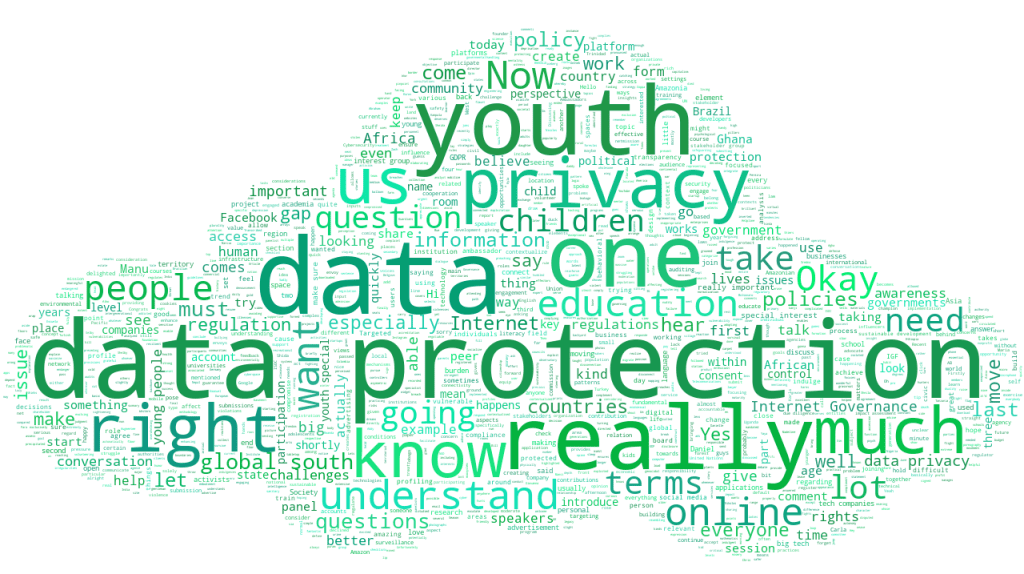Data privacy gap: the Global South youth perspective
29 Nov 2022 14:30h - 15:30h
Event report
The session offered a Global South’s youth perspective on the topic of privacy and data protection, as well as on the challenges they face in their everyday lives and their work as activists.
In the Amazon region, the main human-rights-related vulnerability of environmental activists comes from poor data protection regulations. Quality education and understanding of how privacy and data protection work are essential for their protection. Since the beginning of the COVID-19 pandemic, leakages of personal information concerning people’s locations have increased, which especially endangers activists. In the last few years, there has been an increase in privacy breaches (including compromised passwords and accounts).
During election times, due to fear of governmental repression, the Amazonian youth is sometimes forced to take precautionary security measures, such are avoiding to share their location in real-time on social media. Since most activism happens in regions which are ‘offline’, it is challenging to follow what is happening to activists. There is a need for training programmes which are contextualised and sensitive to Amazon realities on data privacy and protection.
In Africa, some countries did not pass data protection laws or need to strengthen these and related legal and regulatory frameworks. It is a general opinion that privacy and data protection basics need to be taught in schools. The young need to understand the concept of protecting their privacy from a young age.
Today, young people are involved in the development of apps and building of websites, and therefore also need to know how to take care of their privacy. While there is a school on internet governance in Africa, there is a need to move a step further and partner with academia to include privacy protection courses at African universities.
The language big tech companies use on their platforms concerning data collection and privacy policies remains difficult to understand. This endangers everyone’s privacy, including that of young.
The youth of the Global South do not feel as protected on social media as European citizens do. While there are regulations, such as in Brazil, it is felt that heir enforcement is not strong, and more transparency is needed. Data privacy is a human right which is not negotiable. Privacy should be protected by default. These notions should be communicated more clearly with developers and private companies which provide online services.
The young should take part in both technology design and policy. Overall, enhancing civic participation in technology-related matters which affect people’s lives, both now and in the future, is a must.
Globally, one-third of internet users is below the age of 18. Being exposed to cyberbullying, surveillance, grooming etc. at such a young age normalises such behaviour as something that is simply required in order to access a certain platform.
In conclusion, there is a clear need for education and digital literacy on privacy in schools. Additionally, the young need to play a bigger part in the field of policy and decision-making. There has been a trend of increasing regulation in the Global South in the past years. Youth participation through different feedback mechanisms is important for influencing policies concerning privacy and data protection.
By Aida Mahmutovic
The session in keywords
Related topics
Related event


